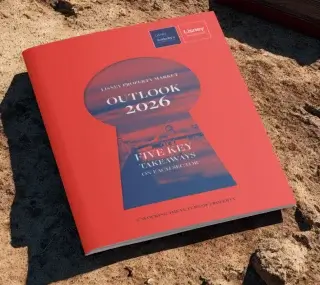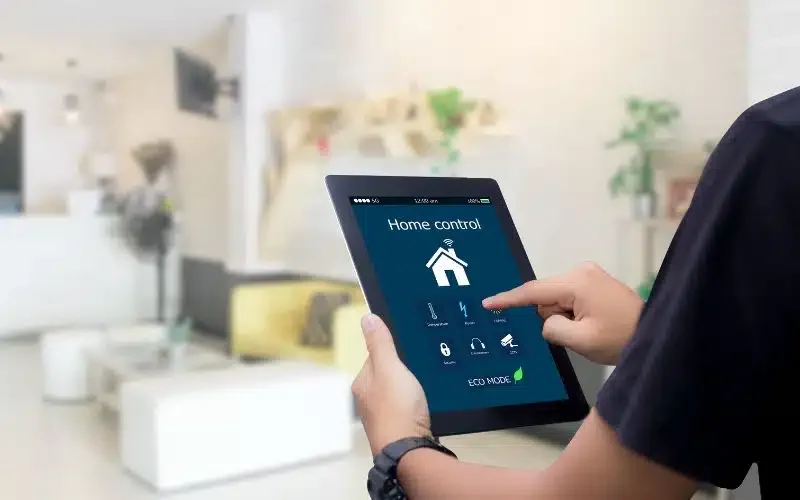read also
 Lisney Property Market Outlook: Irish Property Market Poised for Steady Growth in 2026
Lisney Property Market Outlook: Irish Property Market Poised for Steady Growth in 2026
 Inflation in Romania Slows to 9.6% but Remains Above Forecast
Inflation in Romania Slows to 9.6% but Remains Above Forecast
 Riots in Mexico Disrupt Air Links to Resort Destinations
Riots in Mexico Disrupt Air Links to Resort Destinations
 UK House Prices Stabilise After 2025 Slowdown
UK House Prices Stabilise After 2025 Slowdown
 Israel Housing Market Eyes a Reset in 2026
Israel Housing Market Eyes a Reset in 2026
 Real Estate Investment Declines in Southeast Europe in 2025
Real Estate Investment Declines in Southeast Europe in 2025
TOP Smart Home Technologies in 2025

[right]geeksbrisbane.com
[/right]Experts predict a more intensive development of smart home technologies in 2025, reports Forbes. The most in-demand advancements will focus on energy optimization, more efficient and eco-friendly home solutions, and improving overall comfort and security for residents.
Energy Consumption Management
Sarah Gutterman, CEO of Green Builder Media and owner of Cognition Smart Data, considers energy efficiency the key trend for smart homes in the coming year. "Energy management that requires intelligence (though not necessarily artificial) enables home systems to learn occupants' behaviors and interact with power grids to switch to backup sources and disconnect from the network," she explained. This will help homeowners save money and reduce strain on the power grid.
Smart systems can perform tasks such as pre-heating or cooling rooms when electricity is cheapest and demand is low. They work best when combined with solar panels and energy storage solutions.
Josh Christian, CEO of the Home Technology Association, highlighted the growing trend of whole-home backup batteries. Intelligent power systems provide homeowners with optimal energy management solutions, ensuring greater control and efficiency. These new technologies help prioritize critical devices during outages and reduce electricity costs. The leaders in this category, according to experts, are Savant Power, although Tesla remains the most well-known brand, competing with other major players.
Mark Bryan, Senior Forecaster at Future Today Institute, emphasized that the rising cost of living and increased focus on sustainability are driving homeowners to seek more rational ways to save energy without sacrificing comfort. Similarly, Bill Darcy, CEO of the National Kitchen & Bath Association, believes that smart energy management will be one of the most promising areas in 2025.
Smart technologies are already shaping the real estate market in European countries, with energy efficiency being a key factor. For instance, in Germany, prices for homes with oil and gas heating systems are declining as the country transitions to new energy standards. Properties without efficiency upgrades are expected to lose 20-30% in value in the medium to long term, according to Der Spiegel.
Similarly, in the UK, new energy efficiency regulations have been introduced for landlords. British housing is one of the least insulated in Europe, with millions of people "forced to live in cold, damp, moldy homes." By 2030, all rental properties must achieve a minimum energy rating of C, a significant improvement from the current E rating on the A-G scale.
Other Key Trends
Water Quality Improvements. Amanda Pendleton, real estate trend expert at Zillow, predicts two major trends related to water in 2025. First, smart toilets are gaining popularity—mentions of these devices in Zillow home listings increased by 23% in 2024 compared to the previous year. Second, smart sprinklers are also on the rise, with demand increasing by 8%.
Security Enhancements. Leslie Carothers, director at Savour Partnership, highlighted the demand for smart locks. "Our phones will use facial recognition technology to unlock doors, eliminating the need for traditional keys," she explained. This enhances security while also offering convenience.
Hoi Vo, CEO of the American Society of Interior Designers, also sees home security as a growing trend. Video doorbell cameras are a major innovation, with Ring leading the market in scalability and adoption.
Health-Focused Smart Homes. Experts predict the emergence of smart mirrors capable of analyzing health indicators, air quality, optimal lighting, and other factors. According to Rachel Hodgdon, CEO of the International WELL Building Institute, indoor air quality sensors are becoming more affordable, easier to install, and more accurate. These devices help homeowners monitor air quality, especially in high-traffic areas or homes affected by construction, smoking, or cooking emissions.
Conclusions
Solar panels and smart energy storage solutions are already widely adopted and will continue optimizing energy use in the future. AI-driven energy management will help homes automatically adjust heating and cooling, interact with power grids, and switch to backup sources during peak demand, leading to lower electricity costs.
Expert forecasts suggest that 2025 smart homes will not just be technological advancements but essential tools for improving everyday life. Technologies focused on sustainability, security, and health will help create intelligent, eco-friendly living spaces. While some innovations are still in development, many are already available and becoming more accessible to the general public. The smart homes of 2025 promise to be more energy-efficient, secure, and focused on promoting a healthier living environment for all occupants.


